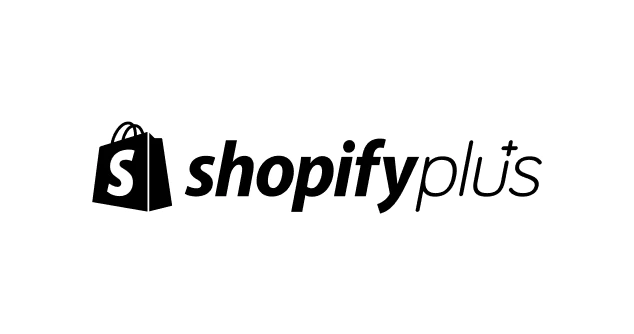Introduction (Clickfunnels vs shopify) : In the dynamic world of online business, selecting the right e-commerce platform can be a pivotal decision. ClickFunnels and Shopify are two prominent players, each offering unique features catering to different aspects of digital entrepreneurship. This comprehensive review aims to explore the depths of ClickFunnels vs Shopify, covering features, pricing structures, usability, and providing an informed opinion on which platform might be the superior choice for your specific business needs.
Quick Comparison: At the outset, it’s crucial to understand the primary focus of each platform. ClickFunnels, as the name suggests, is centered around creating effective sales funnels. In contrast, Shopify is a versatile e-commerce platform designed to provide an end-to-end solution for online businesses. The choice between the two significantly depends on the nature of your business and your strategic goals.
Summary Verdict: For those seeking a condensed overview, ClickFunnels excels in the realm of crafting optimized sales funnels. Its simplicity and focus on conversion optimization make it an attractive choice for businesses prioritizing efficient sales processes. Meanwhile, Shopify, with its robust e-commerce infrastructure, caters to a broader spectrum of needs. The ensuing sections will delve into features, personal experiences, pricing structures, and pros and cons to offer a comprehensive understanding of ClickFunnels vs Shopify.

Features: ClickFunnels prides itself on a user-friendly drag-and-drop editor, facilitating the creation of sales funnels with ease. Pre-built templates, designed to optimize conversion rates, are a significant asset. On the flip side, Shopify offers a more extensive set of features, including a variety of customizable templates, inventory management, and an extensive array of third-party app integrations. Shopify’s focus is on providing a comprehensive e-commerce toolkit that caters to businesses of all sizes and complexities.
ClickFunnels’ strength lies in its simplicity and specialization. The platform is crafted to streamline the process of creating effective sales funnels, allowing users to focus on optimizing conversions without getting lost in the complexities of a multifaceted e-commerce platform. The drag-and-drop editor is intuitive, making it accessible even for those with minimal technical expertise.
On the other hand, Shopify’s features extend beyond just funnel creation. It covers the entire spectrum of e-commerce operations, from managing inventory and processing payments to providing a diverse range of tools for marketing and analytics. The platform’s versatility makes it a preferred choice for businesses that require a one-stop-shop solution for their online presence.

Personal Experience: Navigating both platforms firsthand provides valuable insights into their user interfaces, functionalities, and overall user experience. ClickFunnels stands out for its simplicity and focused approach. The platform minimizes the learning curve, allowing entrepreneurs to swiftly create and optimize sales funnels without delving into the complexities associated with comprehensive e-commerce solutions.
In personal experiences with ClickFunnels, users often appreciate the straightforward process of creating landing pages, upsell sequences, and order forms. The platform’s emphasis on guiding users through the process of creating a sales funnel is evident in its user interface, making it an excellent choice for those who prioritize speed and efficiency.
Conversely, Shopify’s learning curve might be steeper for those primarily interested in sales funnel optimization. While the platform provides an abundance of resources and support, its comprehensive suite of features may require a more significant time investment to fully grasp and utilize effectively.
Pricing: Pricing considerations are paramount for any business owner. ClickFunnels offers pricing plans starting at $147 per month for the basic plan and goes up to $297 for the funnel hacker plan. The pricing structure reflects the platform’s specialization in funnel creation and optimization.

Shopify, being a more comprehensive e-commerce solution, offers a range of plans catering to different business sizes. The Basic Shopify plan starts at $51 per month, Shopify at $132 per month, and Advanced Shopify at $517 per month. The tiered pricing allows businesses to choose a plan that aligns with their current needs and scale as they grow.

While Shopify presents more affordable entry-level options, ClickFunnels’ pricing is justified for its specialized focus on creating high-converting sales funnels. The investment in ClickFunnels is tailored for those who prioritize the efficiency and effectiveness of their sales processes over a broader suite of e-commerce tools.
Pros & Cons: An in-depth examination of the pros and cons of both platforms is essential for a comprehensive understanding of their capabilities.
- Pros:
- Streamlined Funnel Creation: ClickFunnels excels in its simplicity and focus on crafting optimized sales funnels. The platform’s drag-and-drop editor allows users to create effective funnels without extensive technical knowledge.
- Conversion Optimization: The pre-built templates and features are geared towards maximizing conversion rates, making it an excellent choice for businesses focused on sales.
- Cons:
- Limited E-commerce Features: ClickFunnels’ primary focus on sales funnels means it may lack the extensive e-commerce features provided by more comprehensive platforms like Shopify.
- Learning Curve for Advanced Features: While the basics are user-friendly, mastering advanced features may require additional time and effort.
- Pros:
- Comprehensive E-commerce Toolkit: Shopify offers a complete suite of tools for managing inventory, processing payments, and handling various aspects of e-commerce operations.
- Versatility and Scalability: Suitable for businesses of all sizes, Shopify can accommodate the needs of both small startups and large enterprises.
- Extensive App Ecosystem: The platform provides a vast array of third-party apps, allowing users to customize their online stores according to their specific requirements.
- Cons:
- Learning Curve: The abundance of features might pose a learning curve for users primarily interested in funnel optimization.
- Higher Entry-Level Pricing: While Shopify’s entry-level plans are reasonably priced, they may be higher than some businesses starting with a limited budget would prefer.

Opinion: In the ClickFunnels vs Shopify debate, the choice ultimately hinges on your business priorities. ClickFunnels emerges as the preferred choice for businesses aiming to streamline their sales processes. Its simplicity, coupled with a strong focus on conversion optimization, positions ClickFunnels as an efficient solution for entrepreneurs seeking rapid implementation and effective funnel management.
While Shopify remains a robust contender, especially for those requiring a more comprehensive e-commerce platform, its versatility might come at the cost of a steeper learning curve. If your primary goal is to enhance your sales funnel performance, ClickFunnels offers a specialized solution tailored to your needs.
Conclusion: In the intricate realm of ClickFunnels vs Shopify, the decision boils down to the unique needs and priorities of your business. ClickFunnels proves to be a standout choice for those looking to streamline their sales funnels with an intuitive and focused approach. Its user-friendly interface and emphasis on conversion optimization make it an excellent tool for entrepreneurs seeking a quick and efficient solution.
However, the choice isn’t a one-size-fits-all scenario. Shopify, with its comprehensive e-commerce toolkit, appeals to businesses with broader operational requirements. The platform’s versatility, scalability, and extensive feature set position it as a go-to solution for those seeking an all-encompassing e-commerce platform.
Consider the specifics of your business model, growth trajectory, and technical expertise. If you prioritize a specialized focus on sales funnel optimization, ClickFunnels is the frontrunner. On the other hand, if you require a more extensive e-commerce infrastructure with a plethora of features, Shopify remains a strong contender.
In the grand scheme, the ultimate decision depends on the balance between the depth of features and the simplicity of implementation that aligns with your business objectives. Both ClickFunnels and Shopify have proven their worth in the market, each catering to a distinct niche within the expansive landscape of online entrepreneurship. Assess your priorities, weigh the pros and cons, and make an informed decision that propels your business towards success in the digital realm.






Pingback: The dummies guide to starting a business